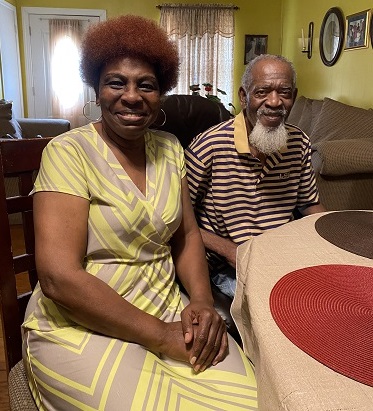By Abdul Seraaj | Edited by Intisar Seraaj
Editor’s Note: The CEO of Seraaj Family Homes, Inc. (SFH), Abdul Seraaj, is currently making personal visits to some of the agency’s foster parents, as he likes to model the kind of continuous quality improvement practices our employees should practice. Although he’s the CEO, Seraaj and his cofounding partner began the company while functioning in most of the roles themselves, including case manager, foster parent, and therapist. So, Seraaj often reverts back to his foundational roles and education—with a master’s degree in family and marital counseling—and makes home visit to clients himself. This keeps his skills sharp, allows him to personally connect with our foster parents, and exhibits the quality of home visits employees are expected to conduct. The series “Spring 2021 Foster Parent Visits” on our blog give us a look at his field notes for his visitations. Here’s Seraaj’s personal account of his home visit to our foster parents Mr. and Mrs. Jesse and Elizabeth Brooks.
SFH has several PFTs (“professional family teachers” or foster parents) who have accepted total responsibility for their youth in care while fostering and providing supportive services. SFH also has PFTs who prefer not to accept respite beaks for their foster children. Moreover, SFH has several PFTs who attend all of their foster children’s school-related meetings such as IEPs (individualized educational plans), doctors’ appointments, and many other community activities, without having to depend on a case manager or a family supporter worker. These are all PFTs who are full-time stay-at-home caregivers or care providers for their foster children. I paid a customer service visit to one of these PFT couples: Mrs. and Mr. (Jesse and Elizabeth) Brooks with our Montgomery, Ala. region—although they live in Phoenix City, Ala.
The Brooks couple exemplifies what it means to be called “professional family teachers.” [Elizabeth] is the primary caregiver and foster parent for their two foster children with special needs. She takes total responsibility for their daily care and is a strong, assertive, education advocate for their two children. [Elizabeth] never complains, even when she describes the daily task of taking care of both of her teenage [boys] with special needs. She has one child who is nonverbal. He needs total care, even in the area of potty training, assisting with personal grooming and hygiene like taking baths, 24/7 supervision, and many other daily tasks.
[Elizabeth] is a former schoolteacher and explained what she is (currently) teaching and what she has taught their foster sons. [Elizabeth] conducts her own school [evaluation] visits, concerning the couple’s two foster youth. She noticed that her [foster] sons were not being challenged educationally at school because of their [special needs]. She created school workbooks for the boys and asked their teachers to make sure they do these assignments. [When it comes to their education,] she also prefers attending their IEPs herself.
She understands behavior modification. She understands the concept of behavioral approximation when it comes to teaching children new skills and measuring their progress. She seems to truly understand that progress involving their foster sons must be measured in small, incremental terms. She appears to be totally optimistic concerning the potential their foster sons have.
I am constantly asking our PFTs, who have higher tier level kids with special needs in their homes, to give us an idea of their daily schedule involving the care of their kids. Well, I can tell you their daily schedules are something that most people, including me, would not be able to maintain or physically sustain over [even] a short period of time. However, some of our SFH PFTs are doing that without ever complaining. Yet, our kids in care who are higher tier level should be receiving appropriate supportive services.

